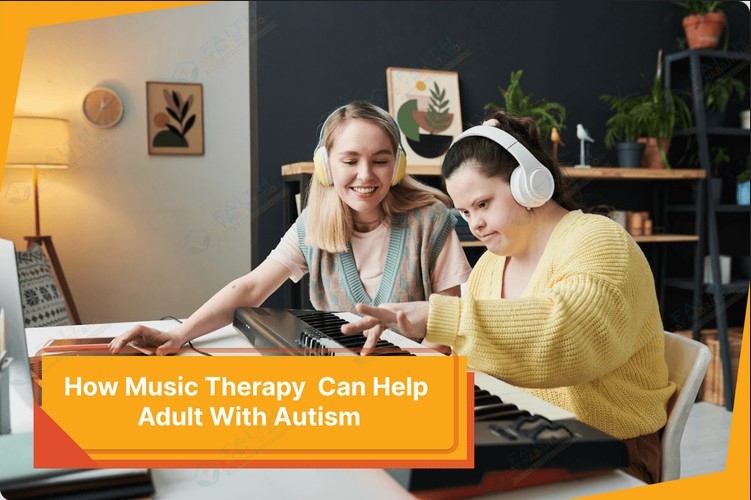The Role of Music and Sound in the Therapy and Development of Adults with Intellectual Disabilities

Music and sound have long been recognized as powerful tools for emotional expression and communication. In the context of therapy and development programs for adults with learning disabilities, these elements play a vital role in enhancing social skills, emotional well-being, and cognitive development. This article explores the therapeutic benefits of music and sound, their applications in various settings, and the positive impacts they can have on individuals with ID.
The Therapeutic Benefits of Music
-
Emotional Expression and Regulation
Music provides a unique avenue for emotional expression, allowing individuals to communicate feelings that may be difficult to articulate verbally. Rhythmic patterns and melodies can evoke emotions, helping participants identify and regulate their feelings. For adults with ID, who may experience challenges in emotional literacy, music can serve as a bridge to understanding and managing their emotions. -
Social Interaction
Engaging in music activities, whether through group sessions, singing, or playing instruments, fosters social interaction. Collaborative music-making promotes teamwork, turn-taking, and listening skills. These interactions can build confidence and create a sense of belonging, essential for social integration. -
Cognitive Development
Music stimulates various cognitive processes, including memory, attention, and problem-solving skills. Learning songs, rhythm patterns, or musical structures can enhance cognitive functioning. For instance, participating in music therapy may involve memorizing lyrics, which can improve recall and attention span.
Sound and Sensory Integration
Sound therapy, which encompasses a range of auditory experiences, can significantly aid in sensory integration. Many adults with ID have sensory processing challenges. Incorporating different sounds, such as nature sounds or instrumental music, can help create a calming environment, reducing anxiety and promoting relaxation.
-
Customized Sound Environments
Tailoring soundscapes to individual preferences allows for personalized therapeutic experiences. For instance, some individuals may respond positively to soft, melodic sounds, while others may prefer more vibrant, rhythmic patterns. Understanding these preferences can enhance the effectiveness of sound therapy. -
Use of Technology
Advances in technology have expanded the possibilities for sound therapy. Apps and devices that produce soothing sounds or interactive music-making tools can be integrated into therapeutic programs, providing engaging and accessible experiences for adults with ID.
Practical Applications in Therapy
-
Music Therapy Sessions
Trained music therapists use a variety of techniques, including improvisation, songwriting, and active music-making, to address specific therapeutic goals. These sessions can be tailored to focus on communication skills, emotional expression, or social interaction. For example, a group songwriting project encourages collaboration and self-expression while promoting group cohesion. -
Community Programs
Many community organizations offer music-based programs that integrate adults with ID into larger social settings. Activities such as community choirs or drumming circles create opportunities for social engagement while also allowing participants to develop musical skills. -
Integration in Daily Life
Incorporating music and sound into daily routines can enhance quality of life. Playing familiar songs during meal times, using rhythmic cues for transitions, or listening to calming music during downtime can create a supportive environment that fosters development and comfort.
Conclusion
Music and sound are invaluable components in the therapy and development of adults with intellectual disabilities. They not only promote emotional well-being and social interaction but also enhance cognitive skills and sensory integration. By embracing the therapeutic potential of music, caregivers and practitioners can create enriching experiences that empower individuals with ID, helping them lead fulfilling lives. As we continue to explore the intersection of music and therapy, it is essential to prioritize individualized approaches that cater to the unique needs of each participant, ultimately fostering a more inclusive society.
- Industry
- Art
- Causes
- Crafts
- Dance
- Drinks
- Film
- Fitness
- Food
- Juegos
- Gardening
- Health
- Home
- Literature
- Music
- Networking
- Other
- Party
- Religion
- Shopping
- Sports
- Theater
- Wellness
- News


